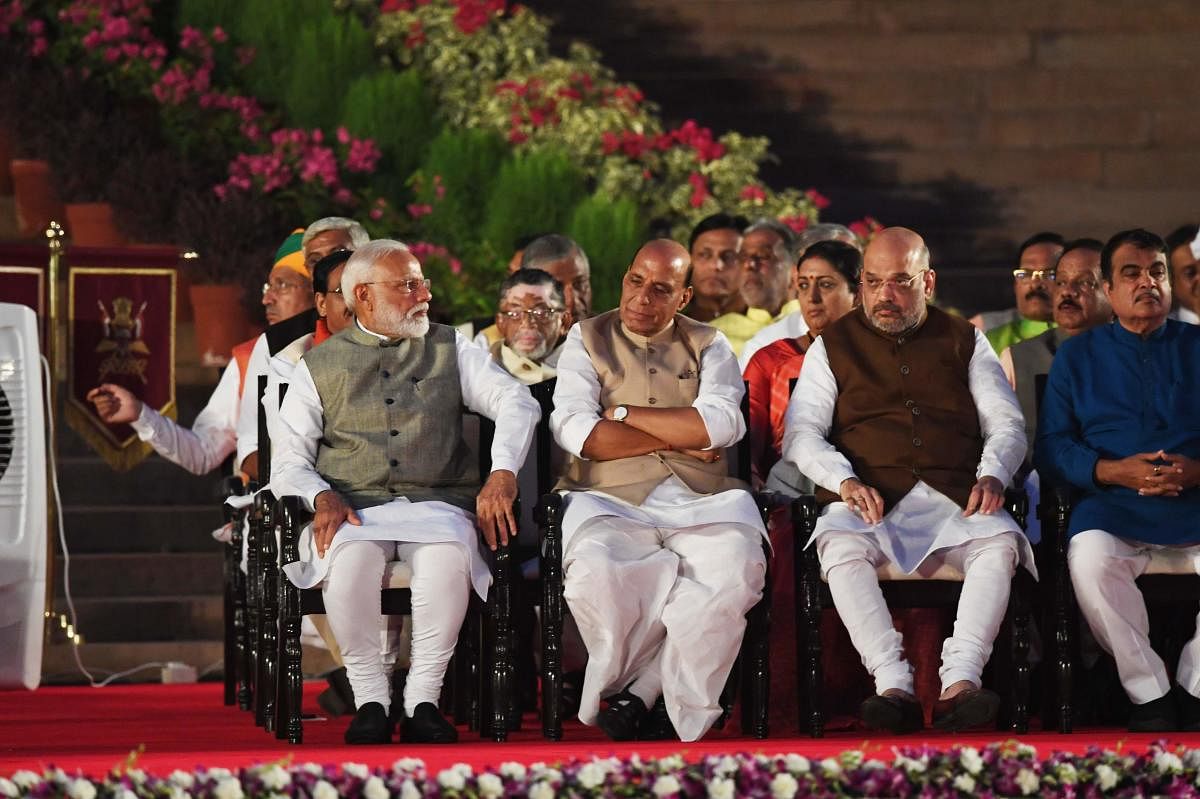
From the induction of tribal leader Arjun Munda to former foreign secretary S Jaishankar, from the big-ticket entry of BJP chief Amit Shah to the exit of Sushma Swaraj and Maneka Gandhi, Narendra Modi 2.0 has attempted to upend traditional ways of forming a government, hitherto held hostage by one big factor: caste.
As the BJP won the Lok Sabha polls tiding over caste considerations, there is no pronounced attempt to appeal to caste groups in most of the inductions.
Awarding performers and shunning non-performers seems to be the guiding mantra. There are 19 new faces — young and also with long organisational experience — a package of performance and possibilities.
An encouraging entry is that of Pratap Chandra Sarangi, a social worker from Balasore in Odisha, who defeated BJD’s industrialist Rabindra Kumar Jena.
BJP state general secretary Deboshree Choudhary, who won from the Raiganj also made it to the Council of Ministers.
Deccan Herald is on WhatsApp Channels | Join now for Breaking News & Editor's Picks
